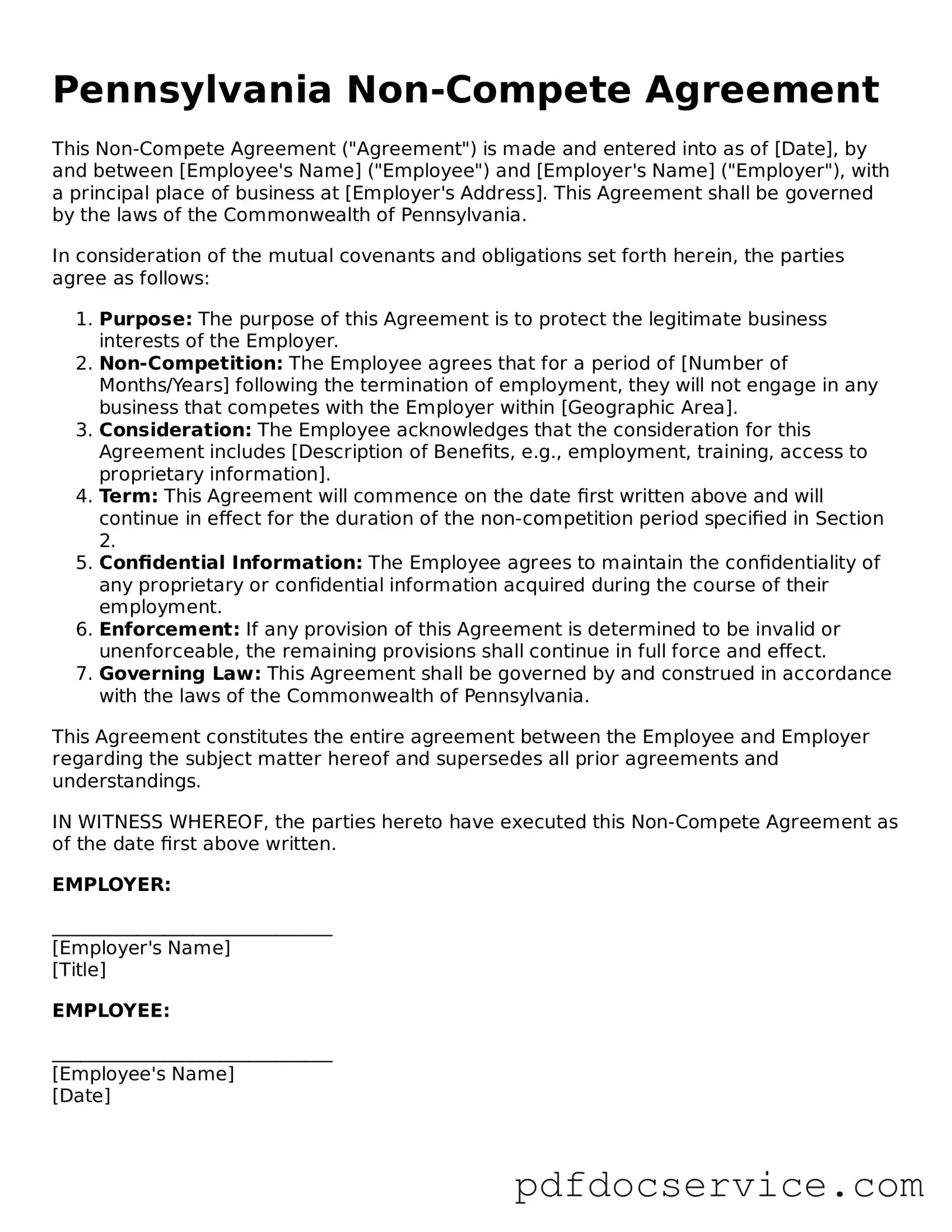What is a Pennsylvania Non-compete Agreement?
A Pennsylvania Non-compete Agreement is a legal contract between an employer and an employee. This agreement restricts the employee from engaging in activities that compete with the employer's business for a specified period and within a defined geographical area after leaving the company.
Why are Non-compete Agreements used?
Employers use Non-compete Agreements to protect their business interests. These agreements help prevent employees from taking proprietary information, trade secrets, or client relationships to a competitor. The goal is to maintain a competitive edge in the market.
What are the key components of a Non-compete Agreement?
A Non-compete Agreement typically includes the following components:
-
Duration:
The length of time the employee is restricted from competing.
-
Geographic Scope:
The specific area where the restrictions apply.
-
Scope of Activity:
The types of activities the employee is prohibited from engaging in.
-
Consideration:
Something of value exchanged between the parties, such as employment or compensation.
Are Non-compete Agreements enforceable in Pennsylvania?
Yes, Non-compete Agreements can be enforceable in Pennsylvania, but they must be reasonable in scope. Courts typically consider factors such as duration, geographic area, and the nature of the restricted activities. If the agreement is deemed overly broad or unfair, it may not be enforced.
What factors do courts consider when evaluating a Non-compete Agreement?
Courts in Pennsylvania evaluate several factors when determining the enforceability of a Non-compete Agreement, including:
-
The necessity of the agreement to protect legitimate business interests.
-
The reasonableness of the time and geographic restrictions.
-
The impact on the employee’s ability to find work.
-
The public interest in enforcing or not enforcing the agreement.
Can an employee negotiate a Non-compete Agreement?
Yes, employees can negotiate the terms of a Non-compete Agreement before signing. It is advisable for employees to seek modifications that reflect fair terms, such as a shorter duration or a more limited geographic scope. Open communication with the employer can lead to a more equitable agreement.
What happens if an employee violates a Non-compete Agreement?
If an employee violates a Non-compete Agreement, the employer may take legal action. This can include seeking an injunction to prevent the employee from continuing to work for a competitor or pursuing damages for any losses incurred due to the violation.
How can an employee protect themselves before signing a Non-compete Agreement?
Employees should carefully review the Non-compete Agreement before signing. It is beneficial to:
-
Understand the terms and implications of the agreement.
-
Consider consulting with a legal professional for advice.
-
Negotiate terms that are fair and reasonable.
Pennsylvania Non-compete Agreement forms can be found online through legal document services, law firms, or state-specific legal resources. It is important to ensure that the form complies with Pennsylvania law and is tailored to the specific needs of the employer and employee.

